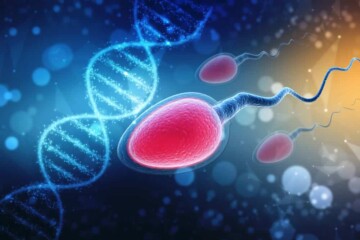There are many different types of male infertility; some are curable and others aren’t.
Erectile dysfunction – this can be physiological or psychological. It is usually curable but might require help from a therapist or treatments and medication.
Sperm quality – having low sperm motility, bad morphology, or DNA damage can all cause infertility. All three of these tend to be curable through supplementation and correct nutrition. Impryl® has been shown to significantly improve live birth outcomes for men suffering from infertility.
Azoospermia – a condition where a man has no sperm present in his semen. Although it is a rare condition it is more common than you may think, with 1% of all men suffering from azoospermia. There are three main types: pre-testicular, testicular and post-testicular. Pre- and post-testicular azoospermia are curable whereas testicular azoospermia is most likely incurable. In some cases, advanced reproductive technologies can help to extract sperm directly from the testes and fertilise an egg through ICSI (intracytoplasmic sperm injection).













